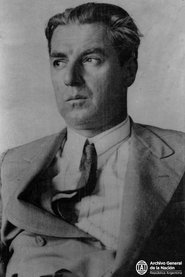Biography:Roberto Arlt (1900–1942) was an Argentine novelist, playwright, journalist, and inventor whose work profoundly shaped 20th-century Latin American literature. Born in Buenos Aires to a family of German and Italian immigrants, Arlt grew up in a working-class environment that would later inform much of his writing. He left school at a young age and took on a variety of jobs—mechanic’s apprentice, salesman, journalist—that exposed him to the struggles and contradictions of urban life, themes that became central to his literary vision.
Arlt’s first novel, El juguete rabioso (1926), introduced readers to his unique blend of social critique, psychological depth, and raw, colloquial language. It was followed by Los siete locos (1929) and Los lanzallamas (1931), works that cemented his reputation as one of Argentina’s most original and unsettling voices. His protagonists are often antiheroes—alienated, paranoid, and consumed by dreams of power or transcendence in a corrupt, indifferent society. These novels offered a stark contrast to the refined, cosmopolitan prose of contemporaries like Jorge Luis Borges, instead embracing the chaos and vulgarity of modern Buenos Aires.
Stylistically, Arlt’s writing is marked by its rough, energetic tone and experimental structure. He broke with literary conventions, mixing slang, journalistic immediacy, and philosophical reflection. Critics have described his style as “brutalist” or “imperfect,” but its very imperfection gave it authenticity and urgency. His Aguafuertes porteñas—a series of newspaper columns—captured the pulse of the city with the same restless curiosity that animated his fiction.
Despite his early death at 42, Arlt’s influence has been enduring. He is now recognized as a precursor of Latin American modernism and urban realism, an unflinching chronicler of marginality, ambition, and despair in the modern city.


